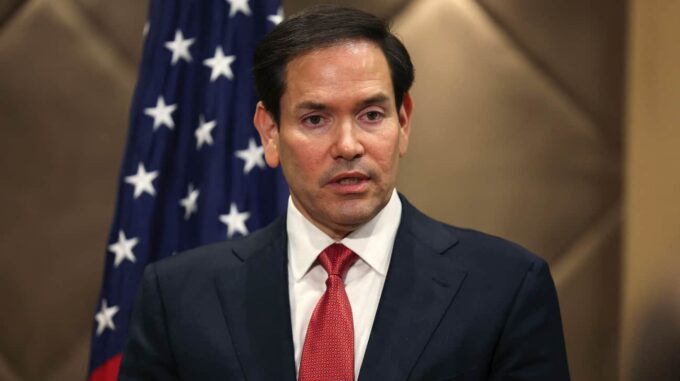Rubio warns of inevitable new sanctions against Russia if peace negotiations in Ukraine fail

U.S. Secretary of State Marco Rubio made a clear statement this week: if diplomatic efforts within negotiations with Russia to resolve the conflict on Ukrainian soil do not make significant progress, Washington is prepared to approve a new package of tough sanctions against Moscow. He expressed this position during an interview with CBS News, emphasizing that the U.S. authorities do not intend to wait for endless dialogues without visible results and believe it necessary to act decisively. During the conversation, the journalist asked the Secretary whether the Russians' delay in negotiations is connected with their deliberate tactics of stalling. In response, Rubio emphasized that the U.S. is making every effort to determine how serious the Russian side is about ending hostilities and whether its true goal is to achieve a peaceful settlement. According to him, the recent talks held in Turkey were quite revealing: Ukrainian and Russian delegations agreed to exchange proposals regarding a ceasefire, although a clear final compromise was absent. Washington hopes that these documents will contain realistic and reasonable solutions capable of making the process transparent and constructive. However, when Russia insists on unacceptable conditions or demonstrates an unfair disregard for international efforts, this will directly impact U.S. policy in this sphere. "We do not seek endless discussions," Rubio noted. "Real progress is needed. And if it does not happen in the near future, we must move to harsher actions." His statements clearly highlight that Washington’s patience has limits, and Congress is already preparing legislative measures for new sanctions against Russia. According to the Secretary of State, if Russia continues to show unwillingness to make concessions and avoid finding a compromise, the sanctions bill will be adopted regardless of the Biden administration’s position. The senator-driven sanctions bill, initiated by Republican Lindsey Graham, already enjoys significant support: about 80 senators are ready to back this initiative, giving them the opportunity to bypass a possible presidential veto and ensure the timely implementation of new economic restrictions. Republican representatives in the Senate emphasize that this process is unstoppable and too important for the future of the region. "We warned the Russians several weeks ago—this process will continue, and the Senate will never stop," Lindsey Graham said in a media comment. "We expect that by the time this bill is passed in the Senate, its support will reach 80 senators. This is an absolute fact, and we will not allow this initiative to be blocked." Overall, the situation around the negotiation process remains tense and unpredictable. At the same time, it is important to note that for a long time, diplomatic and political circles in the U.S. have been reporting an increase in tensions with Moscow. In the first week of May, direct talks took place in Istanbul between Russian and Ukrainian delegations—an historic event after a long pause. However, this unprecedented event immediately drew critical warnings: sources indicate that Russian representatives insisted that U.S. delegates should not be present during the process, and they put forward a number of conditions that were previously unacceptable to Ukraine. In fact, against the backdrop of diplomatic gamesmanship, it is disturbing that Moscow is focusing all efforts on maintaining its positions and achieving maximum influence, effectively trying to prolong the process and manipulate it to its advantage. As a result, the prospects for achieving a fair and lasting peace remain highly uncertain, and the global community is guided by the attitudes of participating countries regarding Moscow’s actual intentions and capabilities in this regard.

